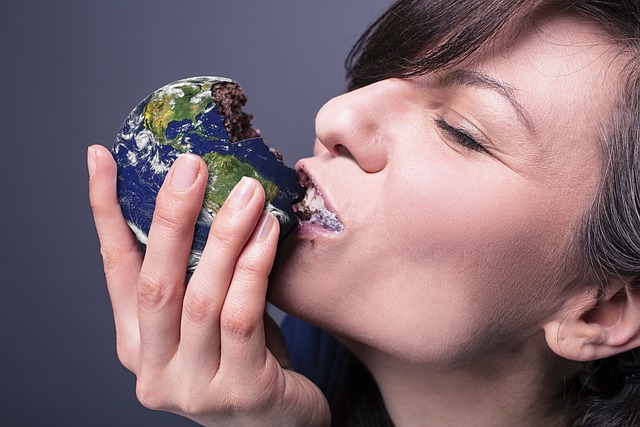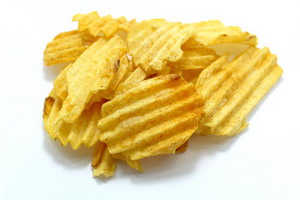Ellen and I have been focusing on the subject of self-l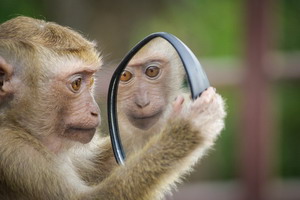 ove for the last week or so. Once we get interested in a subject, we seem to attract many different perspectives from those around us on the subject of interest without asking. Sometimes it is like the world is just a big textbook, and when we start a new chapter everyone around us cooperates in teaching us about the topics in the new chapter. One of the interesting inputs we received is a relationship to self-love as the same thing as being self-indulgent. By this I mean buying yourself special treats, skipping unpleasant tasks, eating or drinking pleasure foods and drinks to excess, and similar behaviors. The concept appears to be that self-love is the same thing as self-pleasuring from this perspective. This does not fit my usual perspective on self-love. Here is an old example of something I wrote back in 2014 for the newsletter:
ove for the last week or so. Once we get interested in a subject, we seem to attract many different perspectives from those around us on the subject of interest without asking. Sometimes it is like the world is just a big textbook, and when we start a new chapter everyone around us cooperates in teaching us about the topics in the new chapter. One of the interesting inputs we received is a relationship to self-love as the same thing as being self-indulgent. By this I mean buying yourself special treats, skipping unpleasant tasks, eating or drinking pleasure foods and drinks to excess, and similar behaviors. The concept appears to be that self-love is the same thing as self-pleasuring from this perspective. This does not fit my usual perspective on self-love. Here is an old example of something I wrote back in 2014 for the newsletter:
Let’s look at a model we all understand – a parent’s love for their young child. Suppose this child came down with a high fever and swollen glands. The child is going to feel awful and express their misery to the loving parent. What does the loving parent do in response? Does the parent say, “You love going to the park, so let’s go to the park where you can play and feel better”? Or does the parent say “Poor baby, here, have some ice cream and candy, that will make you feel better”? Or does the parent say “Let’s put you to bed and keep you warm and see how high your fever is to see if we need to take you to the doctor”?
fever and swollen glands. The child is going to feel awful and express their misery to the loving parent. What does the loving parent do in response? Does the parent say, “You love going to the park, so let’s go to the park where you can play and feel better”? Or does the parent say “Poor baby, here, have some ice cream and candy, that will make you feel better”? Or does the parent say “Let’s put you to bed and keep you warm and see how high your fever is to see if we need to take you to the doctor”?
The key perspective here is that a truly loving parent is concerned about the child’s welfare more than they are concerned with their unhappiness. Unhappiness happens, it is a part of life. The first point is that loving someone, including yourself, is not about trying to please them and make them happy. Loving is about expending energy and attention on seeing to the welfare and well-being of someone.
concerned about the child’s welfare more than they are concerned with their unhappiness. Unhappiness happens, it is a part of life. The first point is that loving someone, including yourself, is not about trying to please them and make them happy. Loving is about expending energy and attention on seeing to the welfare and well-being of someone.
Point 1: Loving yourself is not about seeking pleasure to cover up unhappiness. Loving yourself is about attending to your welfare and well-being.
From this perspective indulgence does not look like s elf-love at all. When I look up the definition of indulgence I find: To indulge means to allow yourself or someone else to have something enjoyable, especially more than is good for you. Another similar definition says: To yield to the desires or whims of (someone), often excessively. The first two examples of a loving mother would be considered indulgent parenting rather than good parenting. Those mothers believe they are being loving because they are trying to make their child feel good. There is a strong cultural connection in this society to associate love with feeling good. This is actually about the experience of falling in love. Neurologically it is very similar to using cocaine and ecstasy at the same time. It feels very good, but it is not sustainable. It is a drug state that burns out in fairly short order because the neurons are getting over-stimulated, so they just shut down. I see this critical difference missed all the time in our culture. We confuse passion and excitement for love. We even mislabel it from the get-go with ideas like “falling in love”. No one falls into concern for the well-being of another, but they do fall into excitement and passion. The problem is we have one word for a whole box full of different feelings.
elf-love at all. When I look up the definition of indulgence I find: To indulge means to allow yourself or someone else to have something enjoyable, especially more than is good for you. Another similar definition says: To yield to the desires or whims of (someone), often excessively. The first two examples of a loving mother would be considered indulgent parenting rather than good parenting. Those mothers believe they are being loving because they are trying to make their child feel good. There is a strong cultural connection in this society to associate love with feeling good. This is actually about the experience of falling in love. Neurologically it is very similar to using cocaine and ecstasy at the same time. It feels very good, but it is not sustainable. It is a drug state that burns out in fairly short order because the neurons are getting over-stimulated, so they just shut down. I see this critical difference missed all the time in our culture. We confuse passion and excitement for love. We even mislabel it from the get-go with ideas like “falling in love”. No one falls into concern for the well-being of another, but they do fall into excitement and passion. The problem is we have one word for a whole box full of different feelings.
Let’s step out of our culture and look at this picture from a different perspective; from Buddhist philosophy. Core  to their world-view is: The attachment to desire is the root of all suffering. This is one of the Four Noble Truths in Buddhist philosophy. Indulgence can be seen as actively pursuing a desire. From the Buddhist perspective, indulgence is the last thing a healthy person would want to pursue for themselves. But what about for your child? What is it you are teaching your child when you are trying to make them forget their pain and replace it with pleasure? You teach them pain is bad and they should not feel it. You show them they need to chase pain away as quickly as possible. Is there any wonder that we have an opioid crisis? Pain is purposeful. It is our built-in guidance towards greater well-being and health. Ignoring pain is the path that leads toward much greater suffering in the future. I think the Buddhists are right.
to their world-view is: The attachment to desire is the root of all suffering. This is one of the Four Noble Truths in Buddhist philosophy. Indulgence can be seen as actively pursuing a desire. From the Buddhist perspective, indulgence is the last thing a healthy person would want to pursue for themselves. But what about for your child? What is it you are teaching your child when you are trying to make them forget their pain and replace it with pleasure? You teach them pain is bad and they should not feel it. You show them they need to chase pain away as quickly as possible. Is there any wonder that we have an opioid crisis? Pain is purposeful. It is our built-in guidance towards greater well-being and health. Ignoring pain is the path that leads toward much greater suffering in the future. I think the Buddhists are right.
Pain avoidance is one consideration, but what about other indulgent behaviors like eating hyper-palatable proce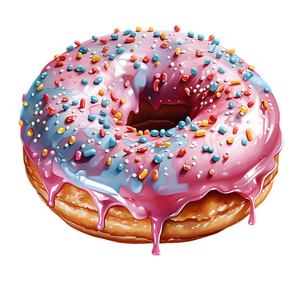 ssed foods? Virtually all of these are toxic to the body no matter how wonderful they taste. Any combination of high fat and high sugar together in the same food makes it super yummy and also impossible for the body to process properly. At a minimum, they all make you fat and generally they kick up a storm of inflammation. Indulgence generally involves just such foods. Nobody I know talks about indulging in a big bowl of steamed veggies! Indulgence is for excitement and stimulation, not for ease and well-being. Indulgence activates the sympathetic nervous system – the fight or flight system. This is the stress system.
ssed foods? Virtually all of these are toxic to the body no matter how wonderful they taste. Any combination of high fat and high sugar together in the same food makes it super yummy and also impossible for the body to process properly. At a minimum, they all make you fat and generally they kick up a storm of inflammation. Indulgence generally involves just such foods. Nobody I know talks about indulging in a big bowl of steamed veggies! Indulgence is for excitement and stimulation, not for ease and well-being. Indulgence activates the sympathetic nervous system – the fight or flight system. This is the stress system.
Other indulgences might include high-risk behaviors like gambling, drinking, casual sex, fighting, or even beau tifying surgery. These are all desires to win, to beat others in some way. These are attempts to cover up and compensate for the good internal feeling that comes from having the skills that generate self-love. What does it take to develop these healthier skills? When does that start?
tifying surgery. These are all desires to win, to beat others in some way. These are attempts to cover up and compensate for the good internal feeling that comes from having the skills that generate self-love. What does it take to develop these healthier skills? When does that start?
Let’s go back to the loving parent again as our model. When a child reaches the age of three and wants to copy everything the parent does, does the parent tell the child they are a failure, bad, and wrong when they can not do everything perfectly the first time? A good parent does not do this. You do not judge a child as bad because they have not yet developed the skills of an adult. A good parent supports the child by patiently showing them how to do things and gives them appropriate positive feedback as their skill level increases. Negative feedback is only given when what the child is doing will threaten their well-being. A good parent also avoids false or inflated positive feedback. Telling a child they are doing a great job when they can clearly see by the results of their actions that they are not doing a great job only teaches the child to distrust the parent. A child needs reality-based feedback because they are depending on this feedback to help guide them to successful outcomes. Similarly, telling a child how wonderful they are no matter how they behave teaches them that they do not need to learn any skills in life but just become dependent on their parents for their functional survival.
When a child reaches the age of three and wants to copy everything the parent does, does the parent tell the child they are a failure, bad, and wrong when they can not do everything perfectly the first time? A good parent does not do this. You do not judge a child as bad because they have not yet developed the skills of an adult. A good parent supports the child by patiently showing them how to do things and gives them appropriate positive feedback as their skill level increases. Negative feedback is only given when what the child is doing will threaten their well-being. A good parent also avoids false or inflated positive feedback. Telling a child they are doing a great job when they can clearly see by the results of their actions that they are not doing a great job only teaches the child to distrust the parent. A child needs reality-based feedback because they are depending on this feedback to help guide them to successful outcomes. Similarly, telling a child how wonderful they are no matter how they behave teaches them that they do not need to learn any skills in life but just become dependent on their parents for their functional survival.
These same understandings apply to self-love. How m uch of the time do we live in self-judgment? We beat ourselves up for failure to be perfect in life, yet the beatings do nothing to support us becoming more skilled. Negative feedback only inhibits action – it never builds better action. Like the good parent that only uses negative feedback when what the child is about to do or is doing will threaten their well-being, we need to adopt the same standard. Only criticize yourself in order to inhibit a behavior that will threaten your well- being then support building alternative behaviors that will achieve the results you desire.
uch of the time do we live in self-judgment? We beat ourselves up for failure to be perfect in life, yet the beatings do nothing to support us becoming more skilled. Negative feedback only inhibits action – it never builds better action. Like the good parent that only uses negative feedback when what the child is about to do or is doing will threaten their well-being, we need to adopt the same standard. Only criticize yourself in order to inhibit a behavior that will threaten your well- being then support building alternative behaviors that will achieve the results you desire.
Point 2: Cut out the self-judgment – it can’t make you a better person. Instead, recognize what you need to learn and support yourself learning it.
Indulgence seems on the surface like a good way to b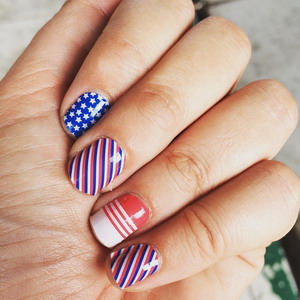 uild self-love, but in truth, it does the exact opposite. Enjoyment of pleasure is not the problem. It is using pleasure to avoid pain or the truth of what one is truly feeling or doing that takes us down. Using excitement to avoid feeling our feelings distances us from our inner wisdom and guidance. Experiencing joy is great. Pursuing joy to avoid feeling the present moment is not. All that we are and all we can be only exists in this moment. Chasing after something other than this moment only separates us from our truth and our ability to become more by the shifts we can make in this moment.
uild self-love, but in truth, it does the exact opposite. Enjoyment of pleasure is not the problem. It is using pleasure to avoid pain or the truth of what one is truly feeling or doing that takes us down. Using excitement to avoid feeling our feelings distances us from our inner wisdom and guidance. Experiencing joy is great. Pursuing joy to avoid feeling the present moment is not. All that we are and all we can be only exists in this moment. Chasing after something other than this moment only separates us from our truth and our ability to become more by the shifts we can make in this moment.
David
Ellen
Last Wednesday was my 71st birthday and Ellen to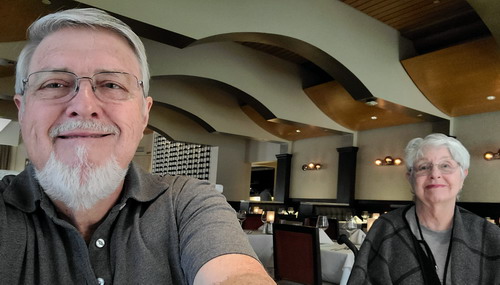 ok me out to dinner at Ruth’s Chris. We each had some lovely sea Bass and a special treat, a baked potato. Since we were taking the day off from our usual Keto diet, we also had dessert – crème brulee for me and bread pudding for Ellen. Our waiter was a delight and we had a lovely time.
ok me out to dinner at Ruth’s Chris. We each had some lovely sea Bass and a special treat, a baked potato. Since we were taking the day off from our usual Keto diet, we also had dessert – crème brulee for me and bread pudding for Ellen. Our waiter was a delight and we had a lovely time.
This reduction occurs at any age and is for both pro-active and reactive aggression. The belief is that the fish oil is affecting brain function and neurotransmitter activity.
___________________________
“You can have everything in life you want, if you will just help other people get what they want. “
~Zig Ziglar
_____________________________________
Following folks over a 10 year period and checking urinary metals excretion plus calcium buildup around the heart demonstrated that the greater the metal exposure the worse the calcium build up. Such metal exposure can be from air pollution as well as foods.
____________________________
“Gratitude is the healthiest of all human emotions. The more you express gratitude for what you have, the more likely you will have even more to express gratitude for.”
~Zig Ziglar
________________________________________
Ultra processed foods promote Diabetes
